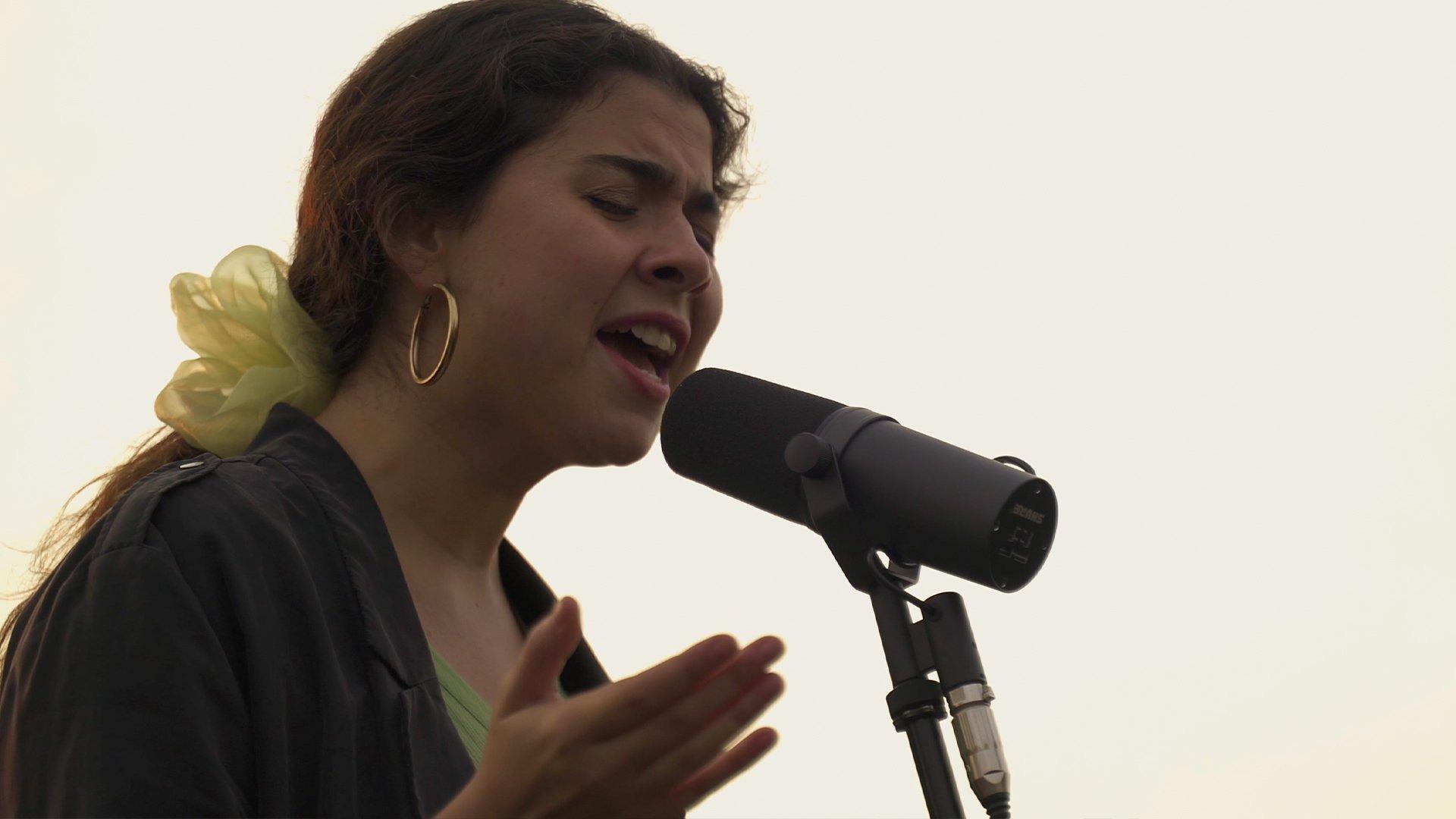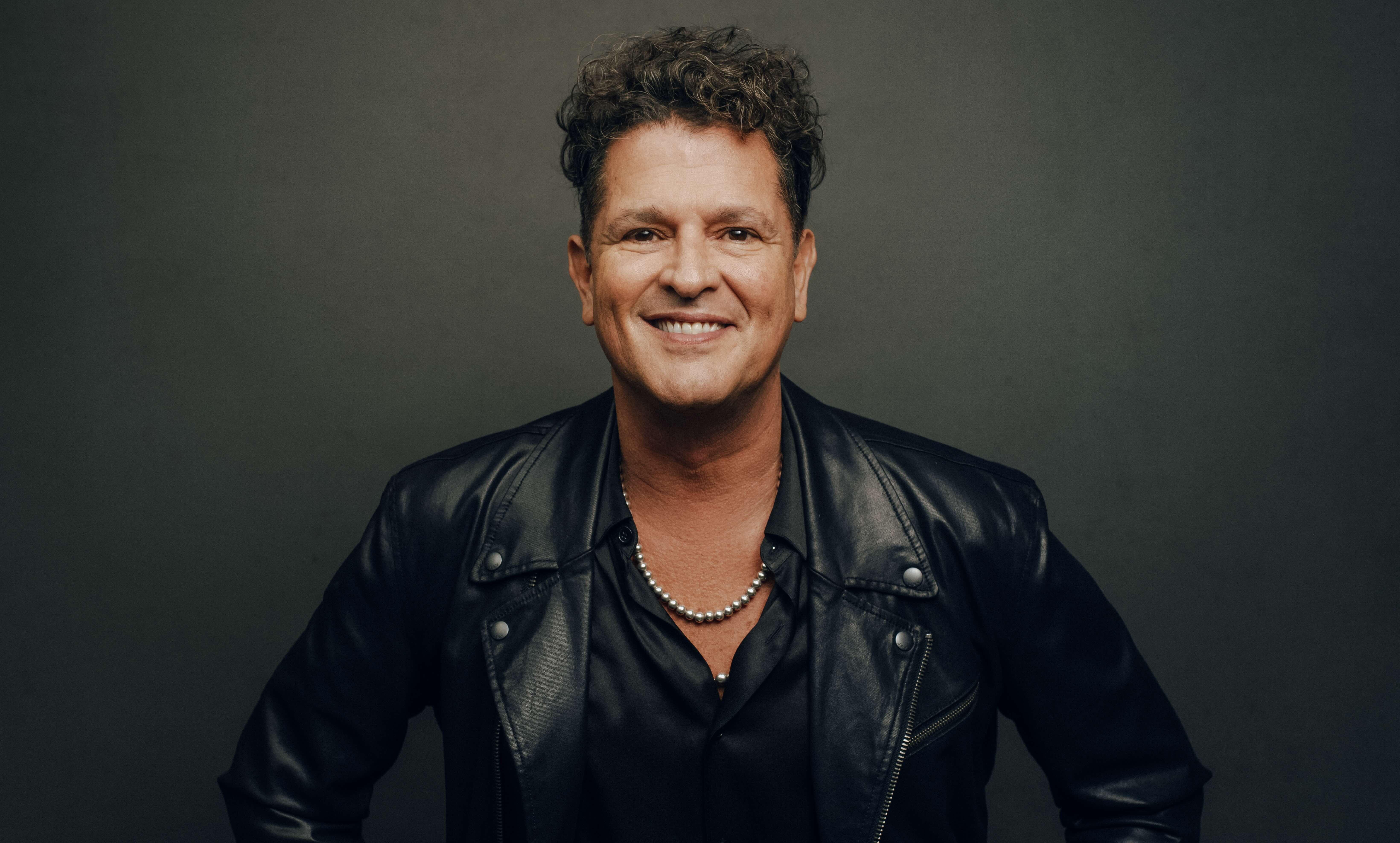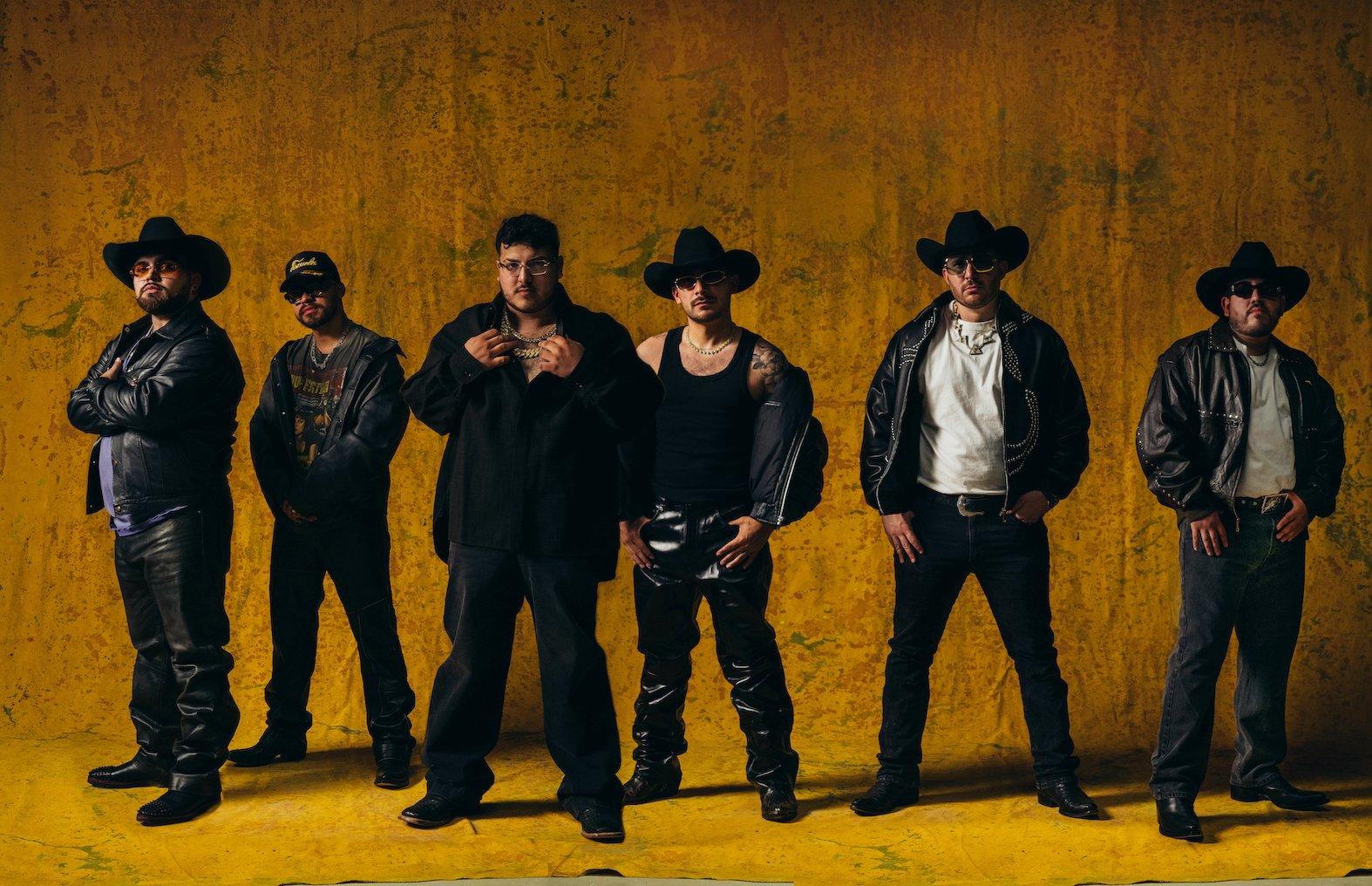In just two years, Grupo Frontera have gone from playing weddings in their native Texas to joining Bad Bunny on stage at Coachella and performing on "The Tonight Show Starring Jimmy Fallon." No matter how rapid their rise to fame has become, the Texas sextet has held the same ethos: celebrating their Mexican heritage while embracing the American culture they were born into.
Embracing that balance has helped them transcend cultural barriers with their modern take on regional Mexican music, which incorporates a wide range of musical styles. That holds true on Grupo Frontera's second album, Jugando A Que No Pasa Nada, out now.
With bright accordion lines and a high-energy blend of urbano party anthems, cumbia-inspired ballads, and forays into pop, the album is a masterful display of the group's mixed cultural background. It retains the same Latin cowboy spirit of their first LP, 2023's El Comienzo — which had roots in the norteño genre, a traditional style originated in Northern Mexico — while tapping into the music they grew up listening to in the States, like hip-hop, corridos tumbados, and country music.
While El Comienzo introduced Grupo Frontera as loyal traditionalists, Jugando A Que No Pasa Nada aims at speaking to younger generations. It's a fitting approach for the group, whose ages range from early twenties to early thirties across its six members — Alberto "Beto" Acosta, Juan Javier Cantú, Carlos Guerrero, Julian Peña Jr., Adelaido "Payo" Solis III, and Carlos Zamora — that also speaks to their evolution amid their whirlwind success. It's proof that they aren't afraid to create music that is completely true to them — and that's exactly what makes Jugando A Que No Pasa Nada special.
Below, Cantu, Guerrero, Peña, and Solis speak with GRAMMY.com about their cultural roots in South Texas and the making of Jugando A Que No Pasa Nada.
The last two years were a very prolific time for Grupo Frontera. What was it like to create Jugando A Que No Pasa Nada after everything that's happened to the group?
Adelaido "Payo" Solis: Last year we were working a lot, playing four or five concerts a week, and that didn't give us time to structure El Comienzo as well as we wanted to. Now we made time to record all these different types of songs. It was amazing to have time to work on the album cover and all the songs the way we wanted to, and have everything set in a certain way to represent the new album to its highest potential.
Between 2023 and this year, were you able to take any time off to work on this new record, or was it done in between touring?
Juan Javier Cantú: There were times when we were touring El Comienzo that we would record before the people got inside the theater. We would record onstage. We'd be like "Wait, don't let the people in — 20 more minutes, we have to finish this session!" That happened with our new songs "Quédate Bebé" and "Nunca La Olvidé."
Solis: It's a little bit of both because those were recorded live, but then two months ago, we locked ourselves in the house for a good four or five days, and out of that came, like, 15 more songs.
You mentioned that, for this new record, you had more time to work on the order of the songs. What's the general feeling behind this track list? Starting with "F—ing Amor."
Solis: The general feel of this album is literally the album's name, Jugando A Que No Pasa Nada [which loosely translates to "pretending everything is OK"]. Since we had more time to think about it, we tied many things to that name, to that phrase.
Everyone, at some point, has pretended everything is OK when in reality, it's not. You can see it in the album cover — the truck is on fire, but our character, who represents Grupo Frontera, is sitting in the car as if nothing is wrong. So the idea — and I know everyone experienced this — is that when you get in your truck, you can play our record and you can drop the act. You can stop pretending everything is alright. You can get in your feelings.
So the way it's structured, starting with "F—king Amor," is that you don't want to know anything about love, then in the middle, you have "Ya Pedo Quién Sabe," which says "maybe I miss you," and then by the end, "Quédate Bebe" [which translates to "Stay Baby"]. So it is a ride, an experience, which starts with you being hurt, or left behind by someone, and you being sad about it, then slowly wondering how is she doing, then saying "I miss you," and finally "stay with me."
Cantú: More than anything, we are playing with genres. In this record, you have our traditional cumbias, country music, and then songs like "Desquite." So that was also the goal, for people to know more about our music and the music we like.
Solis: Each member of Grupo Frontera listens and plays different styles, so starting from that, we each had a big say in the genres we wanted to play and styles we wanted to record on this album.
More than anything, we were thinking of new generations. The Latinos of newer generations that don't speak Spanish, or don't get to come back often to Mexico or the countries where their parents are from. They don't want to hear just cumbia, so in our album, we want to make all these styles for them to find, in our songs, the genres that they like.
You mentioned that each of you has different styles and genres you brought to the new record. How did you work in the studio to generate these new sounds?
Solis: Grupo Frontera doesn't really use a lot of computer sounds, most of the music we play is through our instruments. We used to work on our songs starting from guitar and voice only, but now because we had more time to work on things, we each took a song and would listen to it for days. Then we'd meet again as a group and work on it in the studio: everyone's opinion counts, and no one's opinion takes precedence over the other. That's how, slowly, each new song took shape.
When you talked about the moment in which you get in your car or truck, and finally get to stop pretending everything is alright — does that car culture come from your upbringing in Texas?
Julián Peña: That culture is definitely from where we are from, from the Valley [the Lower Rio Grande Valley, which spans the border of Texas and Mexico], where there are a lot of troquitas tumbadas [lowered or customized pickup trucks]. You'd hear la Raza zooming by, blasting our songs, with the bass booming, from their trucks. So it's kind of like a relief, your safe space.
Like the album's title says, "pretending everything is fine"... you're pretending to be fine and then once you get in your car and you pass yourself the aux, you turn that up and you start bawling, or feeling whatever you're feeling. Then the album's over, gotta get back to work, clock back in, and go back to pretending everything's fine. It's like an escape that we know many people have, it has happened to all of us; you go on a drive to decompress, turn the music up, let it all out, and feel better. That's what we wanted to capture with that image.
What songs did you each play when you needed that kind of moment?
Cantú: When I broke up with a girlfriend, around 2012, my go-to was Drake.
Peña: Mine was "Then," by Brad Paisley. I was just sad and going through a country phase. [Laughs.]
Solis: I would listen a lot to a song by Eslabón Armado called "Atrapado."
Cantú: When I feel a little trapped by this street lifestyle I go, "I Should've Been A Cowboy"! [All laugh.]
I read some of you grew up raising cattle, or come from families of farmers and ranchers. What aspects of that lifestyle do you miss, in contrast with being in a city like LA, and actively involved in the music industry?
Solis: Juan had his ranch around General Bravo [a municipality in Mexico], and I was born in the States, but I would go every weekend to Mexico, to my parent's ranch, where they had cattle. I know Juan can relate to this — when you are at the ranch and play a song, and can sing out loud without anyone around listening or judging you, that's a really nice feeling. When you are on stage, in the industry, you're not singing only to yourself, but to make the audience's day better. So no matter what you're going through, when you're on stage, your job is to make people happy.
Cantú: Going to a place — like a ranch, an open space — to disconnect, it's like a reset. I feel a lot of people have not experienced that, they don't know the power that has.
Through your lyrics, you adapted old love songs and romance to modern times. Some songs even mention emojis, DMs and texting. Do you have any favorite emojis?
Solis: Oh man, I love the black heart emoji because it can mean many things. A dead heart, or that you're not feeling anything. It can mean your heart is broken and needs mending to go back to being red. I think it's super cool.
Carlos Guerrero: I like the thinking face emoji.
Cantú: Sometimes he uses it out of context and we don't know if he's thinking, or he's mad. [Laughs.] For me, the one I use the most is the "thanks" [praying hands emoji].
Peña: I like the heart hands emoji. Like "Hey what's up," and throw a heart hands emoji.
Going back to your music, what's your favorite part of making songs?
Solis: I'm not sure if we all have the same answer, but for me, my favorite part about being able to sing, record and write these songs is to sing them with all the feeling in the world. And that is amazing, to be able to let that out.
Cantú: The simple fact of creating something and getting to test it out, seeing people sing it, it's like, Wow, we made that.
Peña: Yeah, that you do something and then put that out there right and you're like, I wonder if this feeling is gonna get translated the way we want it to. And then, like Juan said, when people go to concerts, and sing it back to us, or we see people post stories of them singing it and going through it. It's like, we made that! We got that point across, and it feels good for all of us.
How do you navigate being an American band with a cross-cultural upbringing?
Cantú: It's really cool. We were lucky to go to Puerto Rico, Colombia and Argentina, to collaborate with artists like Arcángel, Maluma, Shakira, and Nicki Nicole. That helped us understand their culture and meditate on what it means to be Latino, not just Mexican. Latino identity entails so many cultures in one, and even Mexican identity is vast. Latinos are from everywhere.
How was it to collaborate with all these other artists, and open your group to collaborate with them in Jugando A Que No Pasa Nada?
Solis: Basically, we are like a group of brothers. We sometimes spend 24/7 together. We see each other every day, and we spend all our time together on the tour bus and at home, even when we don't need to see each other. So when we collaborate with other artists, like Morat, Maluma, or Nicky Nicole, they sense that vibe — we carry that with us. I feel that carries through, to the point where we can all have that vibe together.
When we are collaborating with other artists, it feels as if it was a friendship that has been around for a while. Like, have you ever felt or had that friendship where you can go like a month without seeing each other and when you see each other is like you had seen each other? That's basically how it is when we collab with other artists.
I know it's hard to pick a favorite song from the new album—
Solis: It's not that hard! My favorite is "F—ing Amor."
Why?
Solis: Because before Grupo Frontera started, that was more the style that I listened to. I got into the music of Natanael Cano, Iván Cornejo, and others. I grew up listening to old cumbia songs that my parents played for me, but in high school, I started listening to new stuff and new genres, so I think that's why my musical style is more versatile. So "F—ing Amor" is more Sierreño, has more bass, and the congas and percussion; the vibe of that song reminds me of how, in high school, I would drive my truck listening to Natanael Cano.
Peña: Mine is "Echándote De Menos." Ever since we recorded it, it has that rhythm in the middle where we all drop, on that note… I like all of them, but that one, in particular.
Cantú: I have to go with two. When I first listened to them, "Los Dos," our collaboration with Morat, and "Por Qué Será" with Maluma. That song, when they first showed it to me, I felt chills down my back.
Guerrero: Mine is "Los Dos," with Morat, because we liked Morat before being with Frontera.
Cantú: To make a song with them is an achievement for us because our big song ["No Se Va"] was a cover of theirs. So making a song together is pretty cool — not many people get to do that.
Solis: We had people tell us that we were stealing their song! We get that Morat is some people's favorite group but we were like, bro, it is our favorite too, that's why we did that song!
What is your dream for this new record?
Solis: We were talking about this yesterday in the van. We don't want to expect anything out of it — success, or big numbers — because this album was made from the heart. We are just so happy and proud to be releasing it into the world.
Guerrero: I just hope that people like it, because, as Payo says, we explored a lot of different genres, so we hope people dig that. We put our best into it.
Cantú: I want what Payo and Carlos said, but also, to go to Japan to play our songs.
Peña: I want what the three of them want, but for people to really connect and identify with the songs. Even if they connect with one or three, what I want for the album is that — to connect with people.
Meet The Gen Z Women Claiming Space In The Regional Mexican Music Movement





